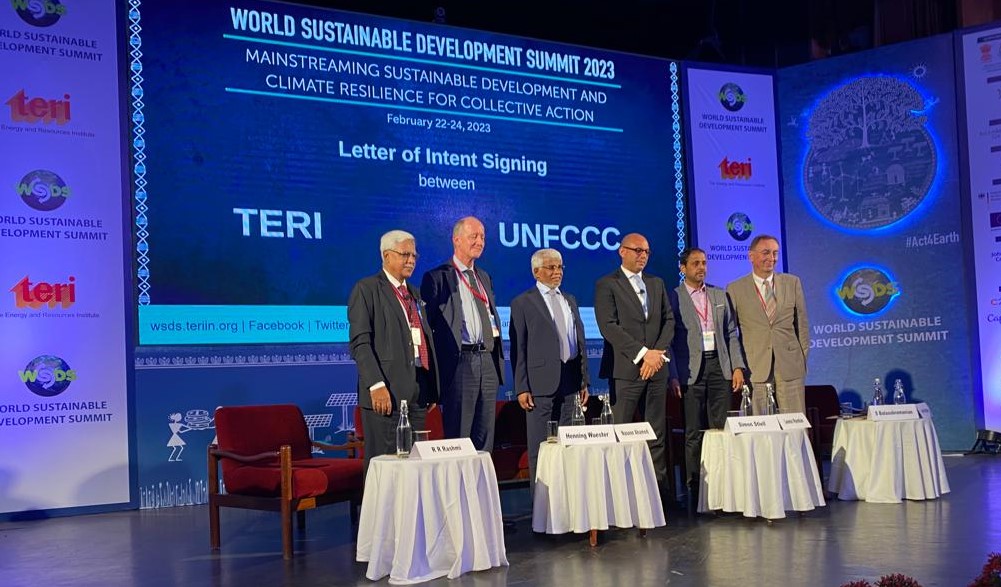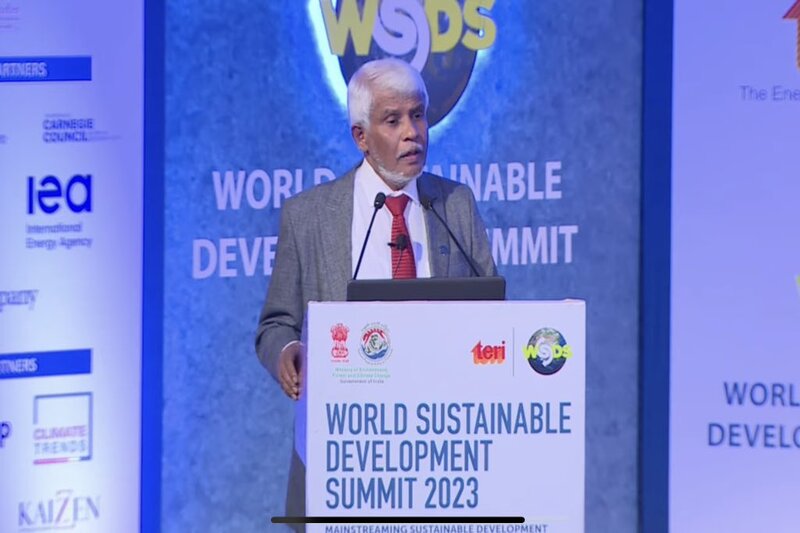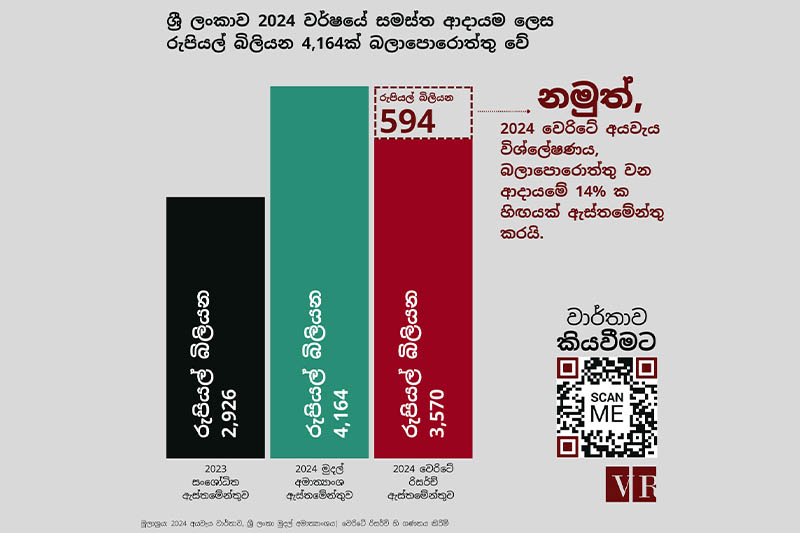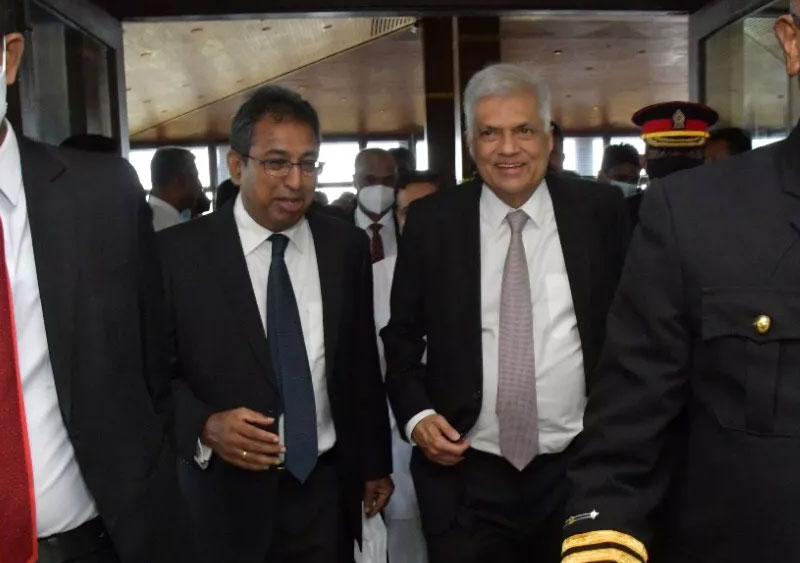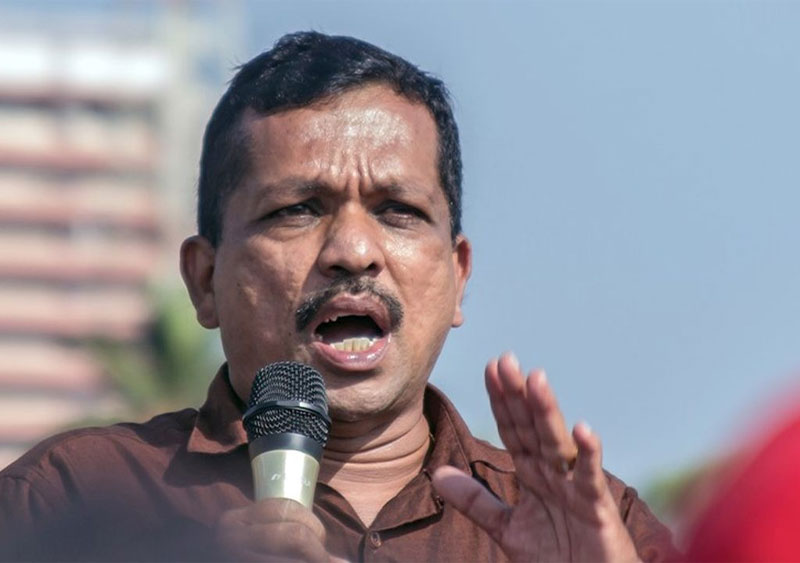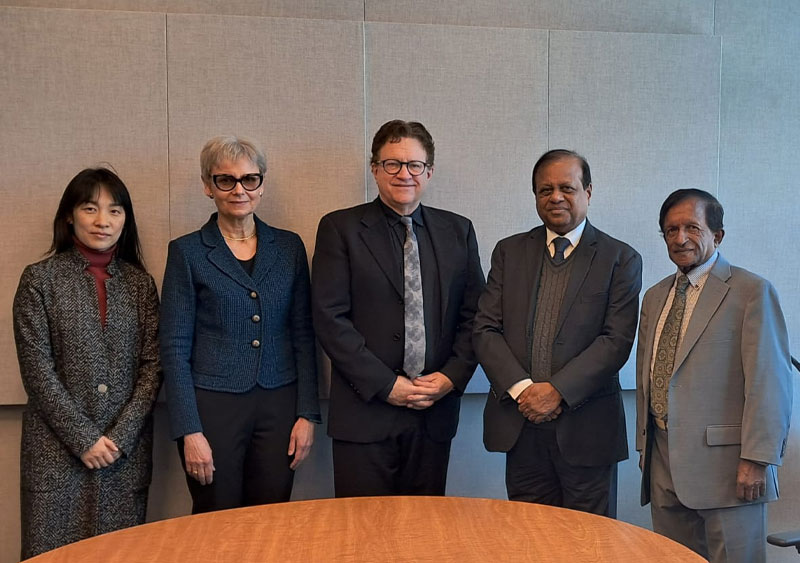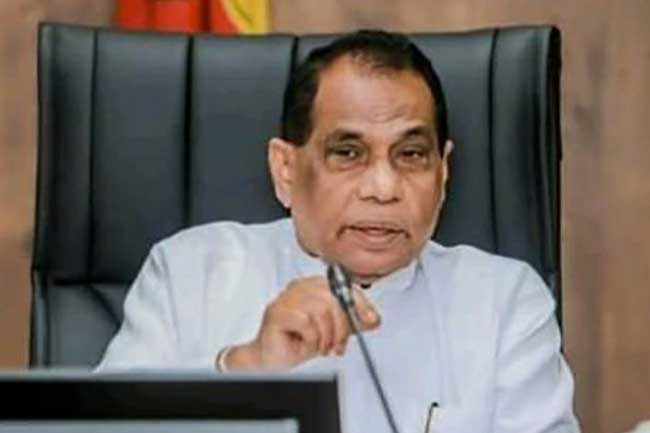Environment Minister Naseer Ahamed mooted the idea of establishing a Biosphere Reserve Bank, a “first-of-its-kind international development bank” at the World Sustainable Development Summit 2023 held in India recently.
Addressing the High-level Session on COP28 Compass, Minister Ahamed justified the Biosphere Reserve Bank as a planetary imperative, highlighting that “without scaling up climate finance on a Biblical scale, with what is famously known in history as the Dunkirk Spirit, we will only win the battle, but lose the war.”
Positioning the Biosphere Reserve Bank as the centerpiece of a revitalized and reengineered Climate Justice Forum, the Minister declared in front of a distinguished panel of speakers that "the overarching goal of COP28 Presidency should be to universalize biosphere consciousness and ecological citizenship as the rocket fuel for radical and accelerated overhaul and transformation of global economy and financial architecture", stressing that "Global cumulative climate debt, with no sign of abating, is a ticking time bomb."
Shri Rajani Ranjan Rashmi, Distinguished Fellow and Program Director, Earth Science and Climate Change at The Energy & Resources Institute (TERI), who chaired this high-octane session on climate justice, hailed the idea of a global Biosphere Reserve Bank as “transformational”.
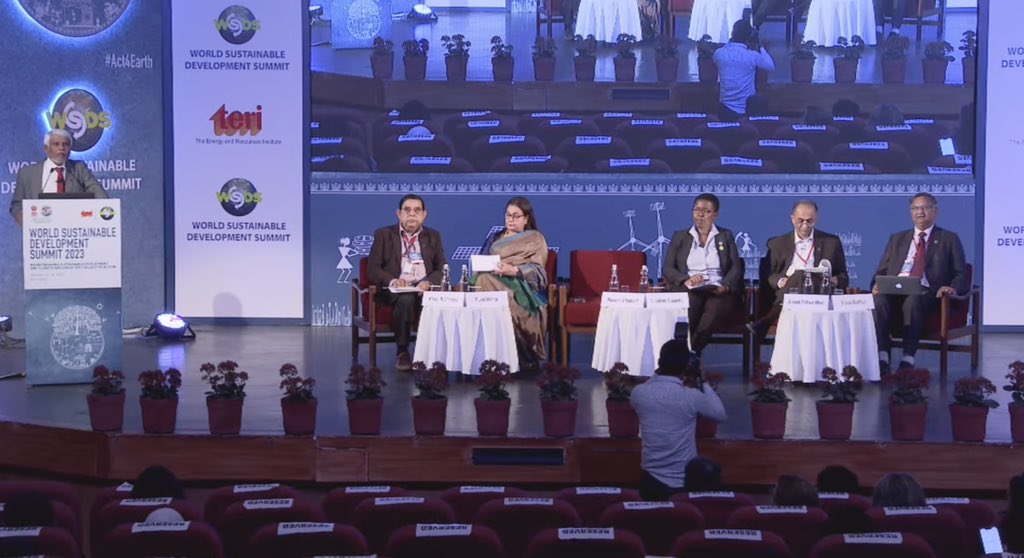
Minister Ahamed unveiled the ground-breaking idea, destined to be a game changer in climate finance, in his ministerial address in front of Jennifer Morgan, State Secretary and Special Envoy for International Climate Action, Federal Foreign Office, Germany, who joined the session virtually, Simon Stiell, Executive Secretary, UN Framework Convention on Climate Change, Leena Nandan, Secretary (EF&CC), Ministry of Environment, Forest and Climate Change of India and other distinguished speakers.
Referring to recent authoritative reports on the magnitude of untapped opportunities for investing in nature and the calamitous cost of inaction, the Environment Minister made a powerful case for the establishment of the Biosphere Reserve Bank. As the reason for suggesting this name for the bank, the Minister said, “Climate finance is all about protecting and restoring the biosphere for future generations.”
Minister Ahamed proposed Colombo as the venue for the world HQ of the proposed Biosphere Reserve Bank. “As the historic host and headquarter of the world famous Colombo Plan, the city of Colombo, located at the demographic cockpit of the world, sharing a mere 15 mile long sea border with our great neighbour India that has the most ambitious green transition ambition in the world, will be an ideal location for the proposed bank, in my humble opinion,” the Minister said, in support of Colombo’s unrivaled geostrategic eligibility for the honor as the birthplace of the idea whose time has come.
The Environment Minister also proposed to submit viable go-to-market strategies and a roadmap within 6 months for the Biosphere Reserve Bank to the President-Designate for COP28 UAE Dr. Sultan al-Jaber, outlining the operational modalities, sources of fund, technical, quantitative, qualitative & governance parameters for mainstreaming and integrating climate finance with conventional finance.
In support of the proposed Biosphere Reserve Bank, Minister Ahamed recalled the remarks made by the Managing Director of the International Monetary Fund (IMF), Kristalina Georgieva at the first High-Level Ministerial Dialogue on the New Collective Quantified Goal on Climate Finance in Sharm El-Sheikh, Egypt, on November 9, 2022, where she said that investment needs for climate adaptation and mitigation are far larger than the USD 100 billion that advanced economies have committed to provide to developing countries. For adaptation, she said that we need to agree on a shared definition of what constitutes an adaptation measure versus a business-as-usual investment, and we need to agree on how we estimate investment needs.
Reiterating the IMF chief’s remarks at COP27, Minister Naseer Ahmed brought to light the Achilles heel of Climate Finance, stating that "we still do not have a common definition - or at least a shared understanding - of what we consider climate finance, together with an agreed methodology for calculating climate finance with all relevant quantitative and qualitative parameters."
On the multilateral front, the Minister brought home the need for high-income economies to "recalibrate international financial institutions, such as the World Bank, and double down on capital injection so that they can significantly enhance the quantity and quality of access to climate finance at the local government and grass roots levels."
For aligning conventional finance with sustainability goals and the triple bottom lines of people, planet and profit, the Minister suggested that multilateral lenders should phase out conventional risk metrics based on the prevailing country credit rating indices "which are anachronistic, and permissive of climate colonialism."
By adopting and mainstreaming climate-smart risk metrics, the Minister observed that multilateral lenders, international banks, sovereign wealth funds and impact investors can unlock trillions of dollars’ worth of green transition opportunities worldwide as so many recent authoritative reports have revealed.
Biosphere Reserve Bank As the Marshall Plan for the Global South
Recognizing the historic agreement on Loss and Damage Fund at COP27 as a landmark achievement of “reparatory justice”, Minister Naseer Ahamed hoped that the fund, currently in its embryonic state, will pave the way for a “Marshall Plan” for climate vulnerable countries in the global south where 80% of world population live.
As the Minister of Environment of one of the most vulnerable countries on the frontline of climate crises, facing large scale biodiversity loss, the Minister brought to the fore the need for greater collective voice for urgent, speedy and equitable execution of the loss & damage fund.
“Securing political visibility, equality & transparency, and front row seats for a united Global South to discuss and determine the trajectory, velocity, quality, quantity and accessibility of the Loss & Damage Fund will be the acid test for rebuilding trust between developed and developing countries,” the Minister said without mincing his words.
Hitting the nail right on the head, applying strategic wisdom from this time-tested adage that the squeaking wheel gets the oil, the Minister made a call to action for the formation of a “Climate Justice Forum” prior to COP28 for amalgamating and amplifying the conscience, voice and existential interests of the like-minded climate vulnerable developing countries from the grassroots to the highest policy makers.
“The Climate Justice Forum will exemplify the principles and best practices of 21st century statecraft and digital diplomacy, and harness the power of Generation Z, to ensure that science, not geopolitics, will drive how climate finance and the loss of damage fund should evolve and function to save the planet from an ecological apocalypses,” he added, elucidating his vision of a laser-focused and results-driven CJF.
